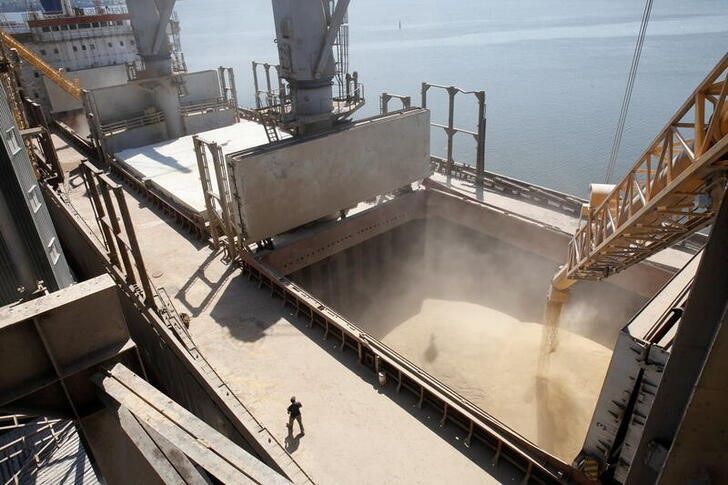A cargo insurance facility providing cover for shipments via Ukraine’s grain export corridor will continue 2023 year with no reinsurance rate increases, an underwriter with Lloyd’s of London insurer Ascot said.
The ‘AsOne’ Black Sea facility will continue unabated with no planned increases to rating. This is against a supply-driven, rate-hardening environment in the marine war market, Reuters explained.

Banks usually require ships entering the three Ukrainian ports that have been part of the UN-backed agreement, to have various insurance policies in place.
These include hull and cargo war cover, which need to be renewed every 7 days.
Because of the conflict, natural catastrophes and high inflation, war and other insurance rates are generally expected to rise sharply across the board next year.
Aviation and marine war insurers are concerned that reinsurers will exclude the whole Ukraine, Russia and Belarus region when reinsurance contracts come up for renewal on January 1st (see Exclusions into International Reinsurance Coverage for Ukraine, Russia & Belarus).
But this should not be a concern thanks to the way the cargo facility was set up. As insurers on the programme share the risk there is no need for reinsurance.
The insurance industry’s core business was affected by the consequences of the war from the start. In the beginning, there was the withdrawal of “Western” reinsurers from the Russian market, followed by the self-isolation of the Russian insurance market and the interruption of cross-border payment flows due to the declaration of martial law in Ukraine.
Both markets – Belarus plays a subordinate role here given the low level of international trade and investments – were thus isolated, but insurance cover was still available locally, albeit with significantly reduced capacities, especially in Ukraine.
It was therefore reassuring that international insurance programs were honoured during their remaining contract period in 2022 and coverage was provided for all three states involved in the war via the Financial Interest Clause of the master contract.

 by
by 


